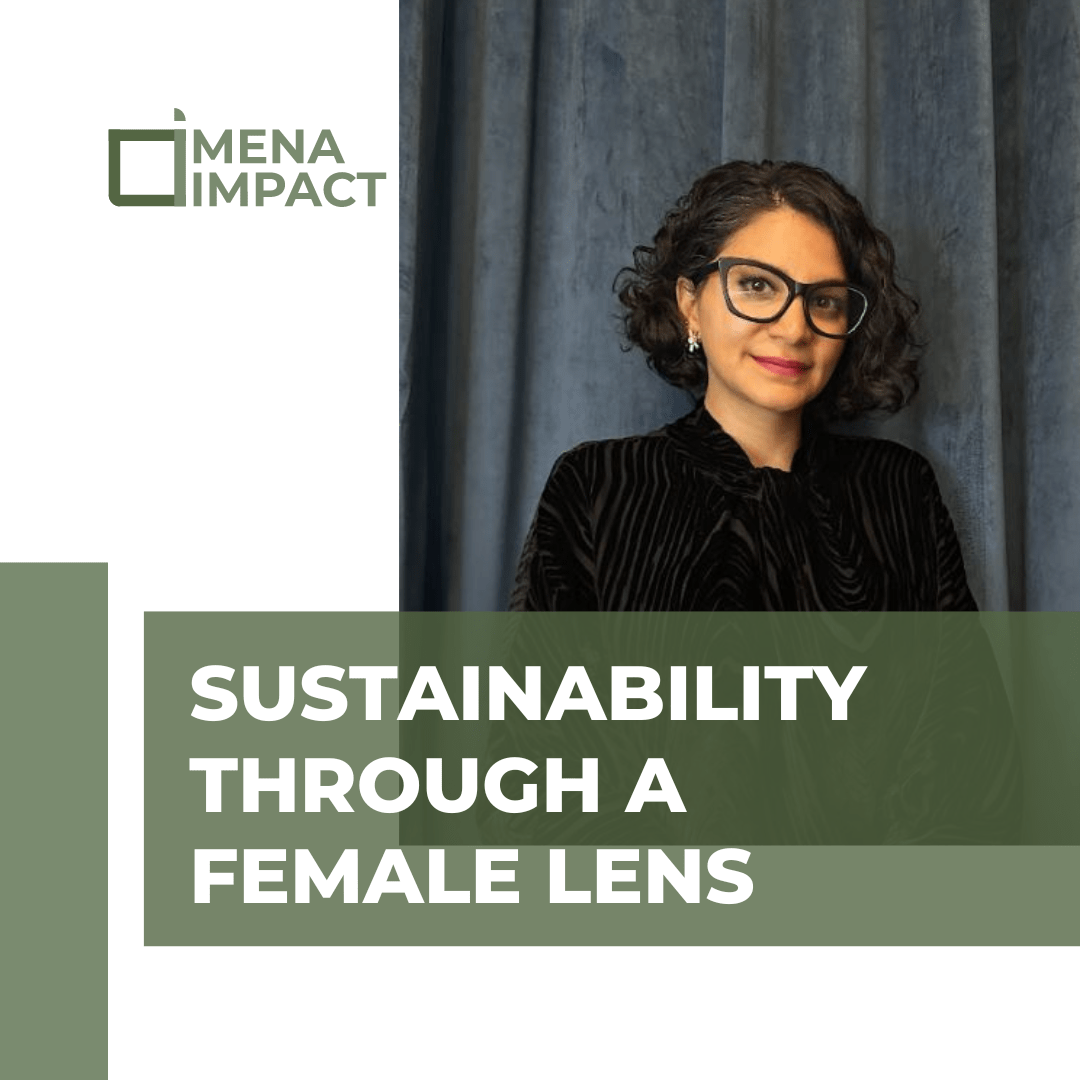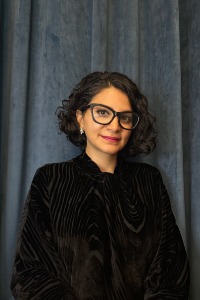Sustainability Through a Female Lens
Sustainability Through a Female Lens

Have you ever wondered why women often seem particularly drawn to sustainability initiatives?
This powerful connection is beautifully illustrated by Parnian Farnam, who observed a compelling pattern while working on Advanced Media’s “UAE Stories of Purpose & Entrepreneurship” podcast series. The series featured the journeys of five remarkable female entrepreneurs in the UAE, all driven by a deep-rooted empathy for their communities and the planet. Here are her fascinating reflections.
I recall preparing a summary report for the CSR department of Advanced Media when I realized that the majority of partnerships and alliances I have forged in realizing the company’s vision towards a sustainable and socially responsible future have been with UAE-based and women-led companies. I am not entirely sure why this pattern surprised me especially since I often come across feminist and environmentalist studies that see a deep connection between the two issues, going so far as to claiming that perhaps it is the feminization of earth as Mother Earth that has resulted in irreversible damage to nature and unconscionable abuses of its resources. There are also countless theories in development studies that emphasize the importance of including women in conversations and actions regarding sustainability yet I was still surprised, perhaps because we live in a world that is obsessed with hard numbers and quantifications to the extent that we disregard the simple solutions right in front of us. It is the good old Wittgenstein argument.
I must also admit that I was afraid to be considered biased as a woman for seeing this pattern as more than just a coincidence. “Are women at the forefront of the sustainability movement?” That was a curious thought that I had and as you would see with these five remarkable women, a curious instinct needs to be explored and investigated. Luckily, Advanced Media saw this as an opportunity to offer a platform to these female entrepreneurs to share their stories. The only solution to overcoming general skepticism is creating open and transparent dialogue and raising awareness, and Nadine Zidani still remains the perfect candidate to calmly and inquisitively learn more about these brands and the female founders behind them.
The Advanced Media’s special podcast series on “UAE Stories of Purpose & Entrepreneurship” with Nadine Zidani traced the journeys of Lara Hussein and Ceylan Üren from the Waste Lab, Ranjitha Raghavan from Back to Nature, Sukriti Verma and Namrata Budhraja from Shift Eco, Simona Sotirovska and Ruby Archambault Giroux from the Botanist, and Sahar Karoubi from Bambuyu. In addition to being inspired by every single one of them, I saw a number of similar patterns emerging in terms of methodology, strategy and mission which may not be uniquely feminine but hold virtues that if adapted by everyone, could surely expedite our efforts towards fighting climate change. Here are some of the lessons that I took away from their podcasts that you could potentially ignore but I know that I would not.
Research your curiosities
Every single one of these brands started in pursuit of the answer to curious questions. As an architect, Ceylan was wondering how she could build healthy soil that can sustain and create life? Sukriti was struck by a simple bamboo toothbrush in the supermarket and Ruby wanted to know if she can provide a clean and toxin-free environment for not just her own family but others as well. These seemingly simple thoughts led to sparks of curiosity that needed to be addressed. There had to be solutions so these women sought them out. They thoroughly researched every topic and I truly mean that they tirelessly spent months researching every aspect, consulted the data, reviewed studies, spoke to the right people until they finally arrived at a moment when their new career paths could have been launched. But it is simply never plausible to go on a journey alone, even those who believe to be self-starters will always share footnotes from a time when they came across a community or a fable of a village that inspired them.
Embrace your village
I know that I can say this confidently: women viscerally understand that it takes a village and when it comes to embarking on a new journey, they know how to rely on and embrace that village, be it immediate family or community. Ranjitha’s journey is full of anecdotes about her sister and her extended family in India, Sukriti and Namrata are sisters-in-law, Sahar’s husband has played a crucial supportive role since the inception of Bambuyu, and Lara and Ceylan’s friendship has created a successful yin and yang partnership. There is a mutual understanding of reciprocity and communal success that is both empowering and motivating. There is also an acknowledgement of humility and recognition that there is no shame in asking the so-called village for support and validation. This is not a zero-sum game. The purpose that is driving every single one of these women is one that is certainly shared. And of course, every community comes with its own traditions and rituals.
Honor Your Traditions
We live in the age of technology or so we have been relentlessly told. The assumption is that technological advancements are our only true salvation in resolving the climate crisis. The over reliance and attachment to tools that are beyond human capabilities have perhaps created a blasé attitude in the general public. Simply put, the magnitude of the crisis and the scale of solutions being discussed have made us both skeptical and passive. “Let governments and big corporations take care of this. What could I possibly do?” But when you listen to the people who have done their research and been listening to the ordinary people on the frontlines of natural disasters and climate crisis, they unquestionably ask you to look into indigenous traditions, learn from the past, revitalize those old family traditions because that’s where you would find the real remedy and wisdom.
As Ranjitha has aptly named her company, we need to go Back to Nature. At the heart of every company is a reminder of the simpler times and familiar ways of living that afforded us comfort and safety and rejected consumerism. Ruby’s inspiration for the Botanist began with an old family recipe for castile soap and the tried and true organic methods of cleaning our houses. Ceylan and Lara recollect their grandmothers’ rituals of rationing, cooking, storing, fermenting, or freezing food in an attempt to live within one’s means and reduce food waste. These are values that not only frame their business strategies but also feed into how they hope to frame future minds and raise awareness.
You All Have Responsibilities
Traditions and communities begin at home and so do the responsibilities of purpose-driven entrepreneurs. Sahar smiles when she talks about how her young children educate her more about the environment at times and Ruby prides herself in starting all of this for the sake of her children. Ceylan and Lara do outreach programs with the UAE municipality and schools to educate and encourage the future generation. The Shift Eco e-commerce platform offers an impressive range of products for the young ones which of course allows this generation to grow up in an alternative and much more responsible society. And beyond raising awareness and using positive reinforcements, each of these women lead by example as forces of nature who are unapologetically themselves.
Lean Into Your Strengths
None of these women come from a background in sustainability or a career that we may traditionally associate with climate activism yet they have all leaned into their strengths as career professionals to establish and promote their brands. Both Sahar and Simona come from backgrounds in graphic design and marketing and it is clear that they understand the importance of aesthetic and identity in attracting a new kind of audience. As an engineer, Ranjitha has focused on creating the infrastructure necessary to manufacture the products in the region to support her aspirations to expand her business. Sukriti and Namrata’s combined experience in the FMCG industry and HR consultancy have allowed them to truly understand consumer mentality and Lara’s expertise in communication advocates for positive language that supports and encourages changing of habits. I heard beautiful phrases such as “no step is too small” or “each individual has the strength” and “make small shifts and sustain them” throughout the podcast, and I finally realized why I had been hesitating to write this and why I finally took a few hours to do so. You get in your own way, especially as a woman.
Lastly, Don’t Underestimate Yourself
A quick google search of “are men more confident than women” takes you down a very interesting rabbit hole that one way or another confirms that women more often than not sell themselves short. Perhaps the reason why these women spent so much time researching their curiosities and interests is because they underestimate themselves or had been actively underestimated at some point. But that comes with a silver lining. Women have now learned to utilize the only resources they have and to rely on their community to prove and justify their stance with unimpeachable facts and ambitions. And they do that with grace and empathy.
We wrapped up the podcast series in September 2023 and it has taken me until January 2024 to write my observations down because I kept getting in my own way. But there is a demand for female voices and perspectives now and that is not just coming from within our own village but rather a younger generation of men who are aiming to make an impact and recognize the need for equity of outlooks and solutions. So here I am, providing you with a list of lessons that you may have not been looking for but I hope would energize you or at least validate you in some way.
About The Author

Parnian Farnam is a prolific writer and translator who has ten years of experience as a researcher, lecturer, and practitioner of human rights. Her interdisciplinary background and extensive experience in governance, community development and civil societies have made Parnian a skilled consultant in the field of sustainability and corporate social responsibility. She has consulted with CSR UAE Fund (now UAE MAJRA), the Umbrella Institute, and now Advanced Media Trading to name a few. Additionally, in recent years she has become involved in the independent Iranian cinema scene at different capacities, most notable are her collaborations with Iranian female directors and activists Pegah Ahangarani and Mahnaz Mohammadi.